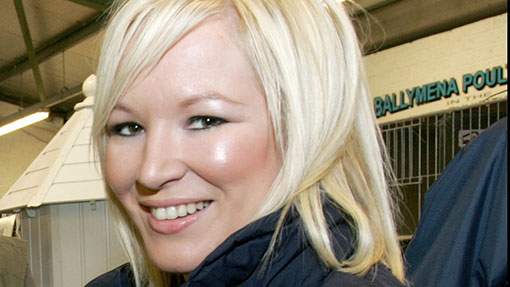O’Neill announces CAP deal for Northern Ireland

Northern Ireland’s agriculture minister Michelle O’Neill has announced further details on the implementation of CAP reform in the country from 2015.
Under the new deal, the basic payment and the greening payment will move to a flat-rate payment a hectare over a seven-year transition period. The flat-rate payment will eventually be set at £100/acre for all farmers.
Other key points of the deal include:
- Funding for The Rural Development Programme for 2014–20 of up to £623m, including £250m of additional government funds to support the Farm Business Improvement Scheme
- No voluntary coupled support – although it will be kept under review
- Less Favoured Area (LFA) payments to farmers in Severely Disadvantaged Areas (SDAs) will come from the rural development pot
- However, a one-year transitional payment for farmers in disadvantaged areas is expected to begin from 2016, approximately half the current amount farmers receive
- From 2017, farmers in SDAs will not receive additional payments.
Ms O’Neill said she was satisfied that the new package of support, agreed by the Northern Ireland Executive, would provide a “solid platform” to “drive the industry forward and help it reach its potential”.
“Overall, today’s announcements represent a good deal for farmers and the agri-food sector, a good deal for the environment and a good deal for the rural economy,” she added.
See also: CAP reform at a glance for UK regions
“Farmers at least now know where they stand and while it isn’t exactly what the union was hoping for we need to look at the positives.”
Ian Marshall, Ulster Farmers’ Union president
The Ulster Farmers’ Union (UFU) said that while the final positions on regionalisation and transition were not ideal, farmers would be relived that an agreement has finally been made.
UFU president Ian Marshall said: “This hasn’t been an easy or smooth process for anyone involved and farmers across Northern Ireland have been seriously worried over the past few months that we would be facing a default position come 1 August.
“The fall-out would have been a complete disaster for the industry and undoubtedly it would have put many farm businesses at risk.
“Farmers at least now know where they stand and while it isn’t exactly what the union was hoping for we need to look at the positives.
“A seven-year transition means that Northern Ireland has the longest transition period of all the UK regions and it gives farmers some time to adapt their businesses.”
The Stormont Executive has also reached agreement on the Going for Growth strategy, which aims to create 15,000 jobs in the agri-food industry by 2020.
See also: How CAP reform will affect UK livestock
